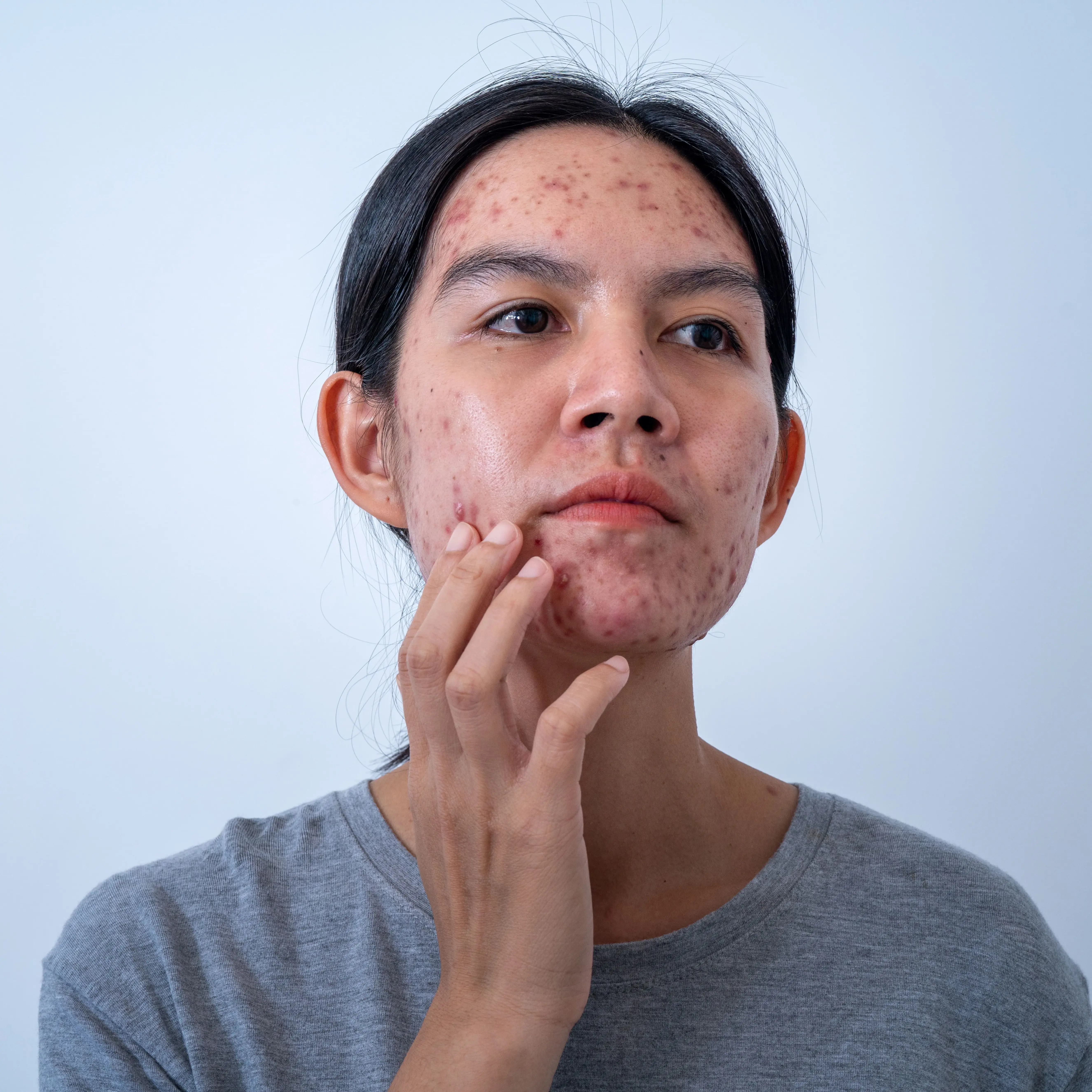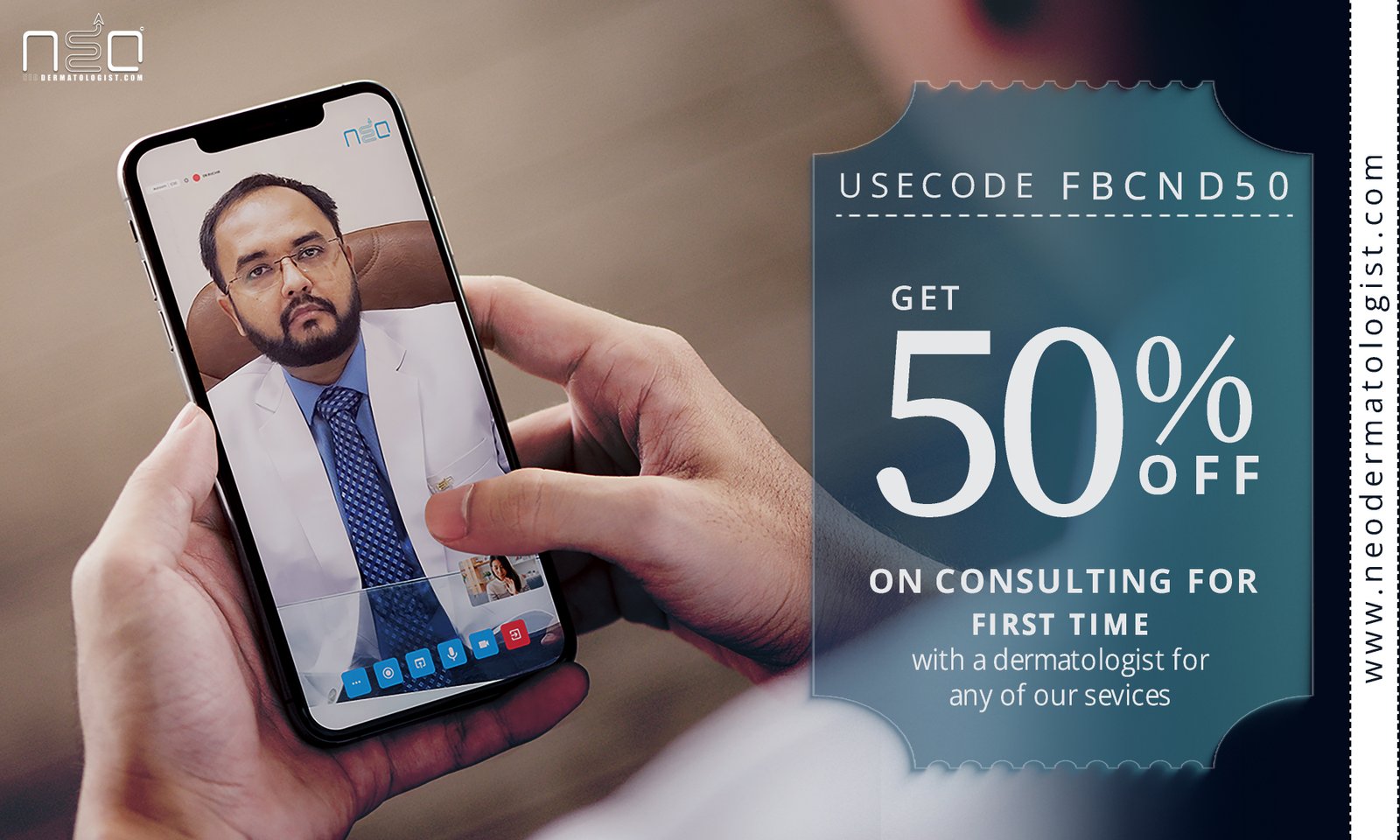June 5, 2024, 6:56 pm

मुँहासों को उजागर करना: सामान्य त्वचा संबंधी समस्याओं को समझना और उनका इलाज करना
Introduction:
Acne – it's a word that strikes fear and frustration
into the hearts of many, regardless of age or gender. From teenage breakouts to
adult onset, this common skin condition can wreak havoc on self-esteem and
confidence. But fear not, for in this comprehensive guide, we'll delve into the
depths of acne, unraveling its mysteries and providing actionable strategies
for treatment.
Understanding Acne:
At its core, acne is a skin condition that occurs when hair
follicles become clogged with oil and dead skin cells. This leads to the
formation of pimples, blackheads, and whiteheads, which can appear on the face,
neck, chest, back, and shoulders. Several factors contribute to the development
of acne, including hormonal changes, genetics, diet, stress, and skincare
products.
Types of Acne:
Acne manifests in various forms, each with its own
characteristics and treatment approaches. These include:
Whiteheads: Closed clogged pores that appear as small
white bumps on the skin's surface.
Blackheads: Open clogged pores that darken due to
exposure to air, resulting in black spots.
Papules: Inflamed lesions that appear as small, red
bumps on the skin.
Pustules: Pimples filled with pus, characterized by a
white or yellow center surrounded by redness.
Nodules: Large, painful lumps beneath the skin's
surface caused by the buildup of bacteria and oil.
Cysts: Deep, pus-filled lesions that can cause
scarring and require medical intervention.
Treatment Options:
The good news is that acne is treatable, and there are
numerous options available to help manage and alleviate symptoms. These
include:
Topical Treatments: Over-the-counter and prescription
creams, gels, and lotions containing ingredients such as benzoyl peroxide,
salicylic acid, retinoids, and antibiotics can help unclog pores, reduce
inflammation, and kill acne-causing bacteria.
Oral Medications: In more severe cases, oral
medications such as antibiotics, hormonal birth control pills, and isotretinoin
(Accutane) may be prescribed by a dermatologist to target acne from within.
Professional Procedures: Dermatological procedures
such as chemical peels, microdermabrasion, laser therapy, and corticosteroid
injections can help improve acne and reduce scarring.
Lifestyle Changes: Adopting a healthy lifestyle can
also play a significant role in managing acne. This includes maintaining a
balanced diet, staying hydrated, practicing good skincare habits, managing
stress levels, and avoiding excessive sun exposure.
Home Remedies: While not a substitute for medical
treatment, certain home remedies may help alleviate acne symptoms. These
include tea tree oil, honey and cinnamon masks, apple cider vinegar toner, and
green tea compresses.
Prevention:
Prevention is often the best form of treatment when it comes
to acne. By adopting healthy habits and taking proactive measures, you can
reduce the likelihood of breakouts. Some tips for preventing acne include:
Cleansing: Gently cleanse your skin twice daily with
a mild cleanser to remove excess oil, dirt, and impurities.
Moisturizing: Use a non-comedogenic moisturizer to
keep your skin hydrated without clogging pores.
Exfoliating: Regular exfoliation can help remove dead
skin cells and prevent clogged pores. However, be cautious not to
over-exfoliate, as this can irritate the skin and exacerbate acne.
Sun Protection: Protect your skin from harmful UV
rays by wearing sunscreen daily, even on cloudy days.
Hands Off: Avoid touching your face or picking at
acne lesions, as this can spread bacteria and lead to further inflammation and
scarring.
Conclusion:
Acne may be a common skin condition, but it doesn't have to
rule your life. By understanding the underlying causes of acne and implementing
effective treatment and prevention strategies, you can take control of your
skin and regain your confidence. Remember, everyone's skin is unique, so don't
be afraid to seek professional guidance from a dermatologist to develop a
personalized acne treatment plan that works for you. With patience,
consistency, and a bit of TLC, you can achieve clearer, healthier skin and say
goodbye to acne for good.
कमेंट करें
आपकी ईमेल आईडी प्रकाशित नहीं की जाएगी। आवश्यक फ़ील्ड चिह्नित हैं
हमारी परामर्श सेवाएँ
नवीनतम ब्लॉग
-
![]() Hair Loss and Diet: Nourishing Your Locks from within
Hair Loss and Diet: Nourishing Your Locks from within -
![psoriasis treatment]() सोरायसिस ट्रीटमेंट
सोरायसिस ट्रीटमेंटOctober 28, 2023, 5:25 pm
-
![Everything you need to Know About Hair Loss symptoms & treatment]() Everything you need to Know About Hair Loss symptoms & treatment
Everything you need to Know About Hair Loss symptoms & treatmentMarch 29, 2024, 6:00 pm
-
![]() Hair Loss And Stress
Hair Loss And StressFebruary 19, 2024, 11:31 am
-
![fungal infection images, tinea corporis images , alopecia images, pityriasis rosea images, vitiligo images , eczema skin images , ringworm pictures of]() How to take photographs for online consultation
How to take photographs for online consultationFebruary 26, 2024, 1:12 pm





























